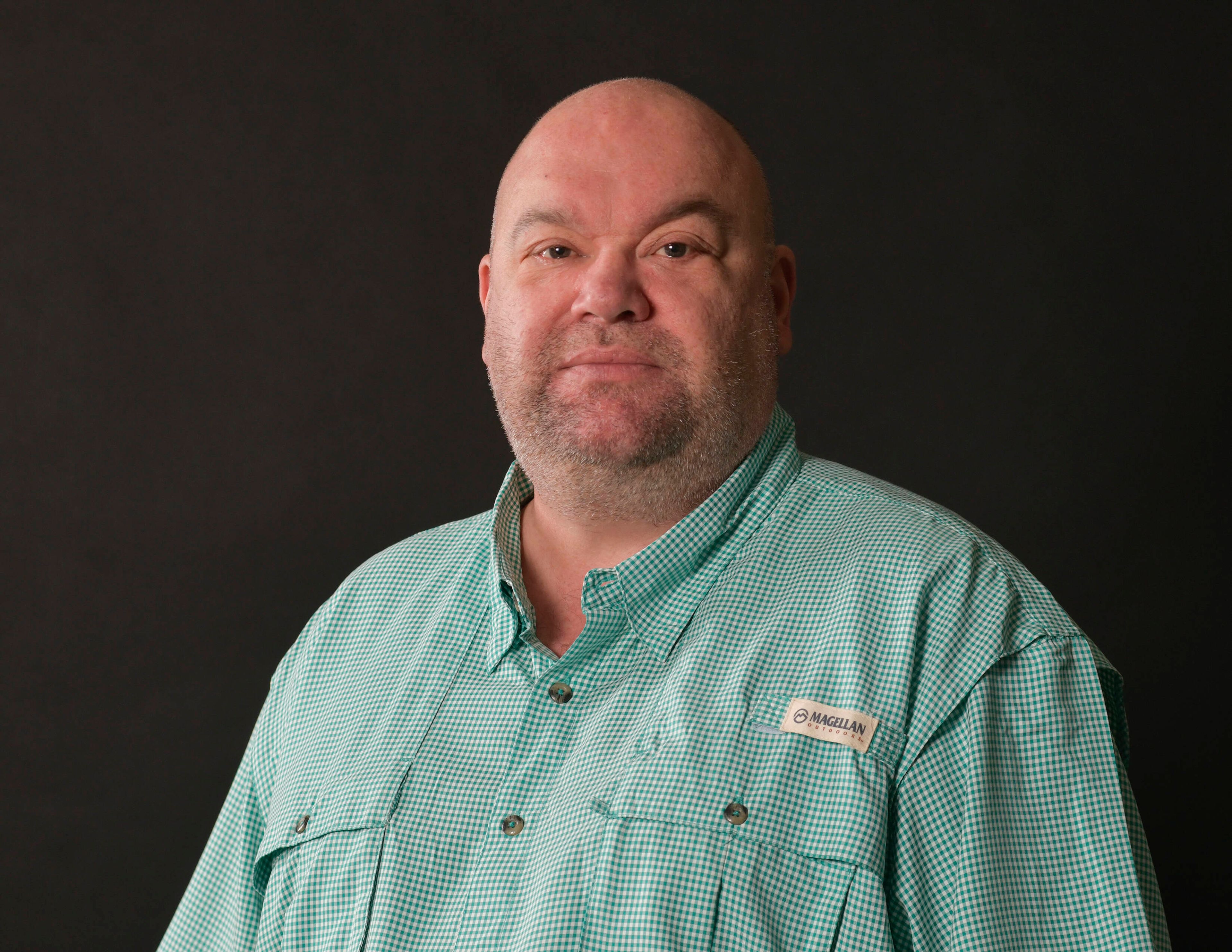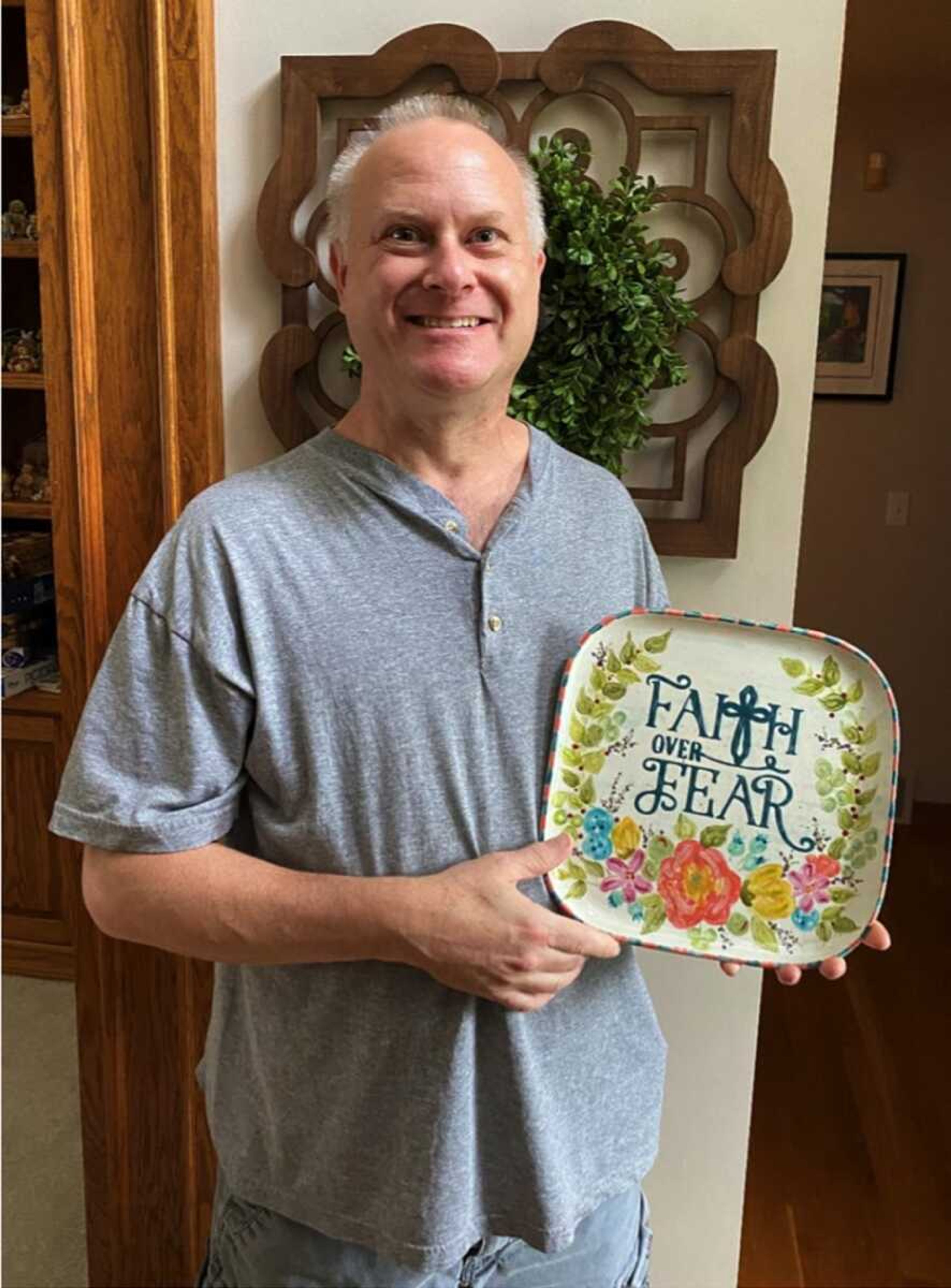In the early days of the COVID-19 pandemic, intubation was often a precursor to death. Patients sick enough to require help breathing usually didn't live. Dr. Keith Graham of Cape Girardeau was one of those patients.
The pulmonary/critical care/sleep medicine physician works with patients who suffer a variety of respiratory problems, and his first coronavirus symptoms manifested as such.
"I first became ill in March, initially with a scratchy throat [on a Thursday evening] followed by malaise and cough over the weekend. These symptoms continued, but became worse, and I had associated fever," he explained of his bout with the disease. "I went to an urgent care center on Monday and was tested for SARS CoV-2 and the result returned positive on Wednesday. The cough made my abdominal muscles sore and it felt like I was punched in the gut every time I coughed. I noticed shortness of breath, loss of smell and taste. The coughing became so severe that I could not talk without coughing. The shortness of breath grew worse and I used a home pulse oximeter to check my oxygen saturation. It was low, and I sent a text to my wife to bring me to the hospital."
That was a Saturday — the day medical personnel at Saint Francis Medical Center intubated him. His condition continued to deteriorate.
"During this time, I was sedated, so I have no recollection of symptoms, or even what was happening to me. The virus continued to wreak havoc with the help of my immune system. When the virus was present in the lung, it produced inflammation and soon activated my immune system. This, in turn, led to acute respiratory distress syndrome, which kept me on the ventilator," he wrote in an email. "My course was then complicated by Klebsiella pneumonia, renal failure requiring dialysis, and deep venous thrombosis. I also had clots in IV lines requiring them to be replaced many times. As my illness continued, I required placement of a tracheostomy tube to continue ventilation and a gastrostomy tube for nutrition."
But Graham beat the odds. He attributed his survival to around-the-clock medical care and prayers from around the world:
"So, a combination of many, many prayers, talented members of the medical community, and available resources made my recovery possible. I cannot provide enough accolades to the people of Saint Francis. I have worked with them for years and if I was impressed with their work before, they really impressed me in my unconscious state! At the time of my hospitalization, hospitals across the world were on a level playing field. No one knew what would work best or not work at all. Some of what are now pretty standard treatments, such as remdesivir and convalescent plasma were not available. ... Let me say everyone, and I mean everyone, that had contact with the COVID-19 Unit at Saint Francis is responsible in some way for helping me. They say they are just doing their job, but to me so much more! There are many that I know went above and beyond their duty, and I hope they know how much love and respect I have for them."
One of Graham's medical care professionals summed the situation: "You are alive because a devoted team of people used the talents He (God) gave them to do what they do best. Through all these hands God chose to keep you here."
Long road to recovery
Months later, Graham has mostly recovered, but his path has been arduous. He is still battling weakness, back pain and shortness of breath. He lost 33 pounds and felt incredibly weak, noting even his iPad was difficult to lift at first. The Air Force veteran is much better now, though he noted he has not recovered to his pre-coronavirus health.
His thankful perspective has been heightened. His wife, Tammy, and business partner, Dr. Bradley Bittle, were instrumental to handling all manner of responsibilities, he said.
"My wife is amazing and I would never take her for granted — I am so thankful for her! She used Facebook to her advantage to reach out to people everywhere to pray for my recovery. Coast to coast, north to south, and scattered places on the globe, people were invested and prayed for me. I never want to take for granted even the smallest mention in prayer. She orchestrated such a huge response that I still have people praying for me every day!" he said.
Of his medical practice, Graham said Bittle selflessly stepped forward to carry on.
Surviving the virus has made Graham even more thankful on a daily basis.
"I am less inclined to worry about things in general and continue to adopt my observation that 'flexible expectations are the key to happiness.' My days are filled with happiness, kind people and optimism for the future. While I am thankful for many things, I am most thankful for my life and all those that helped me keep it."
Connect with the Southeast Missourian Newsroom:
For corrections to this story or other insights for the editor, click here. To submit a letter to the editor, click here. To learn about the Southeast Missourian’s AI Policy, click here.








